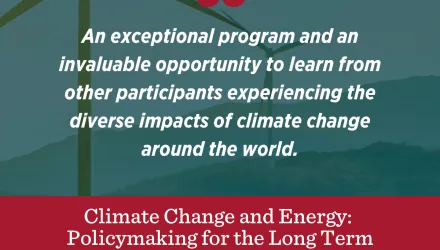Summary
The current global economic crisis highlights the fact that environmental objectives exist in a balance with economic growth, a balance that political leaders struggle to find in their own countries and at the global level. The UNFCCC contributes importantly to achieving a healthy balance by providing an overall framework for action to address climate change and as a regular gathering point for diplomats, policymakers, and technical experts from the widest range of countries. As such, it is a unique forum for building partnerships to help countries meet their own national objectives and to forge the consensus needed for success in global efforts to address climate change. It could also help to coordinate international efforts, creating synergies, and avoiding duplication.
Despite these many advantages, however, it would be a mistake either to rely solely on UNFCCC processes or to give insufficient resources and attention to the many other venues and partnerships that advance global climate objectives, including the diverse contributions from governments, companies, NGOs, and other groups acting individually and collectively.
Dobriansky, Paula J. and Vaughan C. Turekian. “Climate Change Policies: Many Paths Forward.” Harvard Project on Climate Agreements, February 2010





